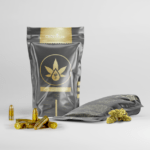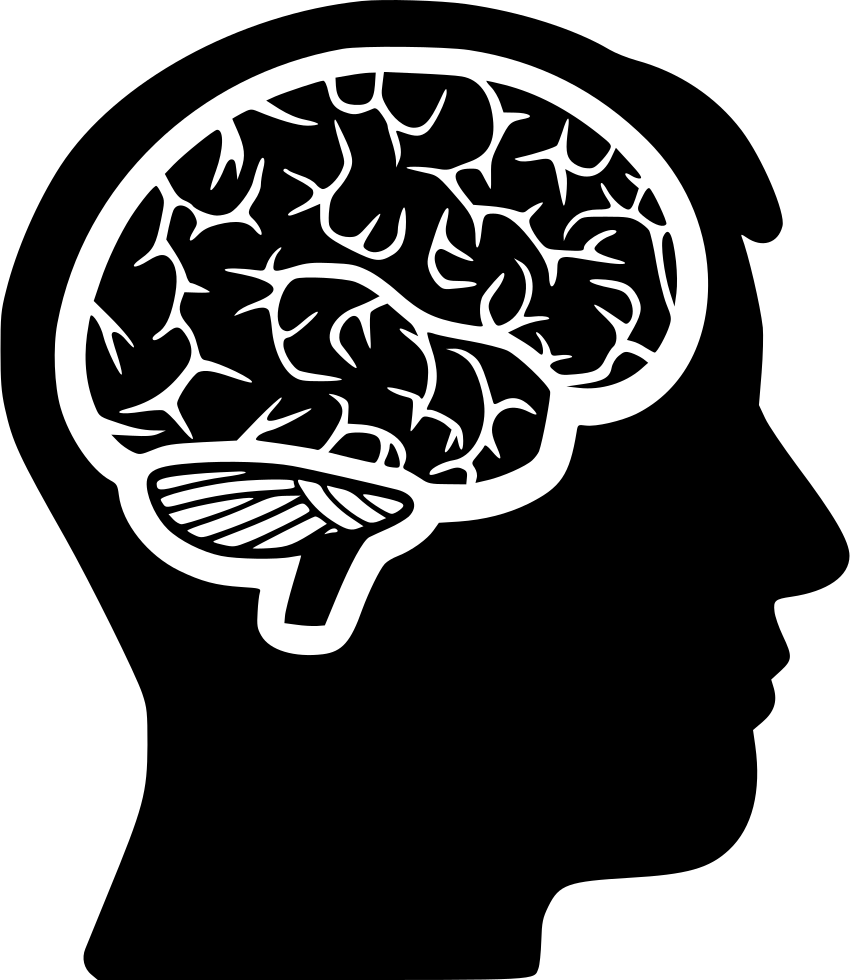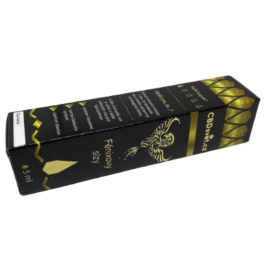
Few feelings are as unpleasant as the feeling that someone is after you. Among the effects that cannabis can induce, paranoia is certainly one of the least desirable. As it turns out, THC, the main psychoactive compound in cannabis, can be responsible for triggering paranoid thoughts in some individuals when they smoke weed.
While not everyone who consumes marijuana experiences paranoia, it can be a common adverse effect. Moreover, some individuals are more susceptible to paranoia than others.
What is paranoia?
Paranoia is a state of mind or feeling in which an individual has unfounded beliefs that others want to harm them. Paranoia is a part of paranoid personality disorder (PPD), characterized by persistent distrust and suspiciousness towards others. It is also a common feature of psychoses and psychotic disorders such as schizophrenia, but it is not always a symptom of mental illness.
Symptoms of paranoia include:
- Neschopnost důvěřovat druhým lidem
- Neschopnost se uvolnit
- Hledání skrytého významu v chování druhých
- Hypervigilance
It is normal to experience occasional paranoid thoughts from time to time. Some populations are also likely to be more prone to paranoid thinking than others: individuals who live in conditions of poverty, isolation or exploitation and those who have low self-esteem , poor physical health or have experienced trauma may often have an increased tendency towards paranoia.
Some substances can also induce paranoia, with cannabis being one of the most well-known examples. Cannabis-induced paranoia can manifest itself in many different ways. Examples include feeling fearful or low self-esteem about what people think, or feeling threatened because someone or something is out to get you.
Those of us who have experienced paranoia after consuming pot will likely attest to this statement. When you’re paranoid, you want to be alone, you’re antisocial, you hide in a dark room and you don’t want to talk to anyone.
How can weed cause paranoia?
In 2014, a groundbreaking study on cannabis and paranoia confirmed what had long been suspected: THC can induce paranoia. The study involves 121 volunteers who were given either intravenous THC or a placebo.
The results clearly showed that THC can induce paranoia in individuals who are more likely to be paranoid: Fifty percent of volunteers who took THC experienced paranoia compared to 30% of volunteers who received a placebo.
The study also offered further fascinating insights into how THC affects paranoid thinking.
Abnormal brain processing
THC appears to disrupt the way the brain processes random events, a phenomenon called abnormal salience. Simply put, individuals are more likely to attach extraordinary significance to coincidental events and misinterpret them after cannabis use. Other studies show that the likelihood of attributing meaning or salience increases further when an individual is exposed to negative emotions such as fear and anger.
In other words, someone who has just smoked weed is more likely to be startled by an angry facial expression and misinterpret its meaning more than someone who has not consumed cannabis. Abnormal salience processing, however, appears to be transient and only occurs when the individual is at a high level.
There is currently no evidence to suggest that long-term cannabis use can permanently impair the processing of prominence.
Excessive brain stimulation
THC can also induce paranoid thinking by other means. Cannabinoid can activate endocannabinoid receptors throughout the brain, including the amygdala. The amygdala plays a key role in regulating fear-related responses such as anxiety, stress and paranoia.
Large doses of THC can overstimulate the amygdala, leading to a surge of fear or anxiety-based reactions. This over-activation of negative emotions can trigger paranoia.
CBD strains can alleviate paranoia
Further evidence suggests that THC may amplify fear responses and paranoid thinking. In one study, individuals were given 10 milligrams of THC and then exposed to frightened faces. These individuals experienced greater amygdala activation than those who took CBD. The CBD cohort of the study actually saw a decrease in amygdala activity.
It is both fascinating and ironic that two different compounds placed in the same plant can exacerbate and alleviate paranoia.
Another recent study comparing the effects of CBD-dominant and THC-dominant cannabis cultivars found that CBD-dominant cultivars triggered an immediate reduction in tension and anxiety. On the other hand, THC-dominant strains saw a sharp increase in paranoia in users immediately after consumption, with the effects wearing off after an hour.
While these findings are far from conclusive, they strongly suggest that THC can induce paranoia, while CBD can help alleviate it.
Are some more vulnerable to paranoia than others when consuming pot?
We know that paranoia can be a fairly common experience for cannabis consumers. Up to 51.4% of cannabis users have had paranoid thoughts while using cannabis. However, it seems that certain factors may make some individuals more vulnerable to paranoia than others.
Knowing that THC causes paranoia doesn’t help
In the largest study to date on paranoia and cannabis, researchers told participants that THC can trigger paranoid thoughts. The researchers hypothesized that when participants become aware that THC produces such an effect, they are less likely to misinterpret random events – a precursor to paranoid thinking.
However, this revelation seemed to have done the opposite and exacerbated the paranoia of those who were told. In other words, cultivating the expectation that cannabis use can be accompanied by paranoia creates a self-fulfilling prophecy.
There is other evidence that also shows that when people are led to associate cannabis with paranoia, they are more likely to recognise the link. Surveys on cannabis and paranoia have shown that people are significantly more likely to report paranoia when they are asked to define it firmly. On the other hand, when individuals are asked open-ended questions about their experiences with cannabis, only 6% report experiences of paranoia.
Genetic predisposition
There is also recent evidence that genetics may influence the likelihood that cannabis causes paranoia. In a large study of 109,308 participants, researchers found that those with a genetic predisposition to psychotic illness were more likely to be paranoid after using cannabis.
However, it is important to remember that experiencing paranoia does not immediately mean psychotic illness – many people will experience mild paranoia at some point in their lives.
Sex can determine adverse effects
Interestingly, sex can also play as a factor. A 2019 study on human participants found that women experience the effects of THC at a lower dose than men. Although the research did not specifically examine whether women are more likely to be paranoid, it does suggest that women are more likely to experience acute side effects after taking THC, of which paranoia is an example.
Another study also found that women are significantly more likely to experience the acute anxiety-inducing effects of cannabis and should therefore start with lower doses than men.
Start with small doses and add slowly
First of all, “start with small doses and add slowly”. If you are inexperienced with cannabis, it is always a good idea to start with a low dose – even a micro-dose – and wait for the effects to kick in before consuming more.
Once you become familiar with how the plant interacts with your body, you can start to adjust your dose and slowly increase it until you hit your personal sweet spot. The sweet spot represents the dose that delivers the desired result without side effects such as paranoia.
Cultivate a positive attitude and attitude
Another method that can help reduce the likelihood of paranoia is to pay attention to the setting. In recent years, research has highlighted the importance of cultivating a helpful mindset and safe environment for the use of substances such as cannabis.
As stated earlier, paranoia tends to rise when a range of negative emotions are present. For example, anxiety can quickly lead to feelings of threat or vulnerability. Consuming weed in an environment where you feel safe and at ease and with a relaxed, open state of mind can help reduce the likelihood of paranoia.

Breathe it out
However, if you do all the right things and paranoia still hits you, all is not lost. Although stoned paranoia can be intense and overwhelming, it is usually short-lived and subsides after an hour or two. The following techniques can lessen the intensity of the experience and help pass the time.
Some cannabis users swear by simple solutions like deep breathing, relaxing activities like yin yoga, wrapping themselves in a blanket and waiting for the paranoia to subside, or getting horizontal and chilling in bed.
Products that may be of interest to you
Herbs, spices and CBD strains
There are also anecdotes about inhaling or consuming freshly ground black pepper or lemon juice. The aromatic terpenes present in these plants can help induce relaxation or feelings of grounding, similar to the effects of aromatherapy.
Finally, try CBD. Taking CBD induces feelings of calm, counteracts anxiety or negative feelings, and helps alleviate paranoia.
All information drawn: https://www.leafly.com/news/health/why-does-cannabis-cause-paranoia-and-anxiety























